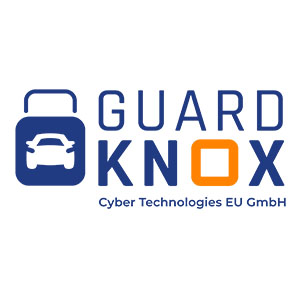Connecting a vehicle to the external world created new risks. Systems have been connected to billions of devices, computers, and objects across the world. Even though the security of some of these connections may be strengthened by carmakers or OEMs, the situation creates new risks. GuardKnox identified the market gap and bridged it with the best in the industry automotive cybersecurity for connected cars. The connected vehicle requires enormous processing power, vast data storage, and numerous communication channels. Virtually all of the vehicle’s functional subsystems participate in the layered network shown above and all of them have been subject to attacks by white-hat and black-hat hackers.
Traditional technologies provide adequate safeguards and reporting to deal with attacks. However, while moving to Safety-Critical operations, connected cars must be maintained as closed systems. According to a survey conducted by GuardKnox, of over 1,000 vehicle owners in the United States, drivers are not as prepared for the next generation of autonomous vehicles as manufacturers may think – pressing concerns on autonomous vehicles, privacy, and cybersecurity are still prevalent for the average driver.
GuardKnox’s deterministic cybersecurity methodology answers the requirements of the Safety-Critical Subsystem for the connected car. Its fully deterministic, closed-system approach does not look for attacks but ensures that the vehicle continues to function as it was designed. The security design has no need for cloud connectivity nor ongoing updates so no malware can sneak in and corrupt the safety requirements of the vehicle.
“If you can hack a car, you can hack every car or infrastructure that is connected to the car. From the charging station, you can connect to the grid, and then to the power plant, which becomes a national risk. Nobody is taking responsibility for mitigating this risk – worldwide.” says Moshe Shlisel, CEO of GuardKnox Cyber Technologies “Secondly, all the pieces of infrastructure such as traffic lights can be controlled by V2V or V2X, and hackers can remotely control the traffic lights and control the traffic in the city. The fact that the car is being connected to the city infrastructure, and the car itself is not protected, can jeopardize the daily life of a city.” he adds.
Mr. Shlisel emphasizes how critical is automotive cybersecurity in today’s world and how GuardKnox has dedicated teams to help automotive companies maintain secure car conduct. “With the advent of new technologies and capabilities, the automotive industry is going through a paradigm shift in which car owners are changing from ‘drivers’ to ‘subscribers’. Drivers are expecting a more enhanced, innovative, in-vehicle experience but still have concerns regarding increased connectivity and more autonomy,” says Mr. Shlisel. “Now is the time for automakers to consider consumer concerns and employ proactive, secure-by-design products that guarantee peace of mind protection and provide a customizable in-vehicle experience that can be updated instantaneously while still ensuring the safety of the Electronic Control Unit (ECU). Automakers have the power to push forward a new era of innovative vehicles for drivers if they act now,” he adds.
The way we drive our cars is changing. Today’s drivers want personalized experiences when they travel, and this is pushing suppliers and OEMs to shift from a vehicle-centric approach to a driver-centric one. Today, 381 million cars and trucks are connected, and the number will only continue growing as consumers crave more personalization at their fingertips. Connected vehicles are now able to act like smartphones and smart appliances, sharing internet and wireless network access with other cars and external devices. They can upload data and receive information. New software is already providing more features and capabilities fulfilling drivers’ desires and expectations. Cyberspace has met the road, and automotive cybersecurity is paramount and must be an integral part of the design.

Company:
GuardKnox
Management:
Moshe Shlisel – CEO
Description:
GuardKnox offers a deterministic cybersecurity methodology that answers the requirements of the Safety-Critical Subsystem for the connected car and ensures that the vehicle continues to function as it was designed. The security design has no need for cloud connectivity nor ongoing updates so no malware can sneak in and corrupt the safety requirements of the vehicle.











